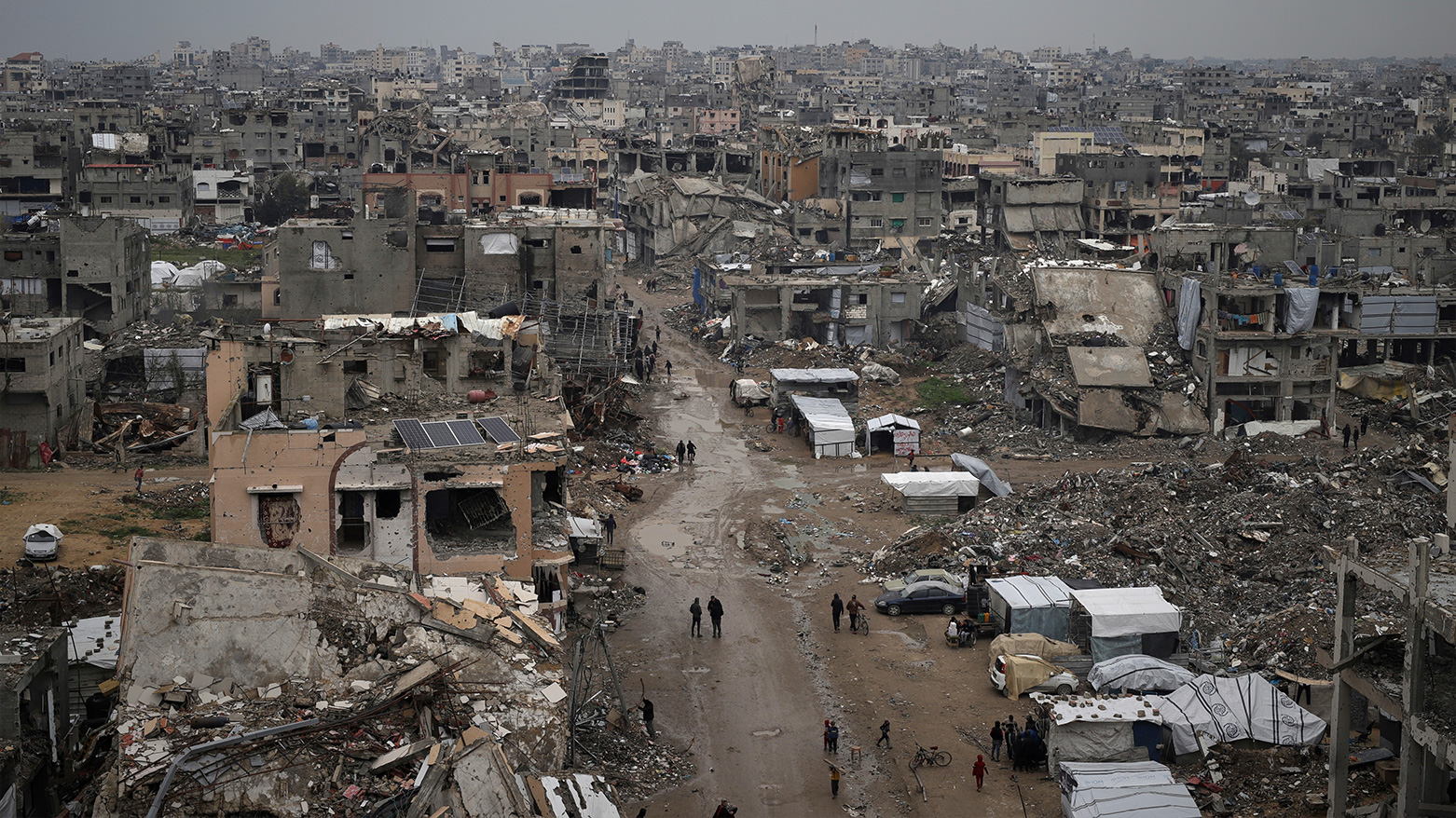'No Ceasefire Deal Yet, But Negotiations Continue,' Hamas
"We as Hamas support starting the second phase as soon as possible," al-Qanua stated, highlighting the organization's position on ceasefire negotiations currently taking place in Doha, Qatar.

ERBIL (Kurdistan24) – The Palestinian Islamic Resistance Movement (Hamas), is urgently pressing for the initiation of the second phase of the Gaza ceasefire agreement, warning that continued Israeli blockades could trigger a severe humanitarian crisis during the holy month of Ramadan, the movement's spokesperson told Kurdistan24 in an interview on Friday.
Abdel Latif al-Qanua, an official spokesperson for Hamas, emphasized the deteriorating conditions in Gaza following the conclusion of the first ceasefire phase, while also expressing support for recent statements by U.S. President Donald Trump opposing the forced displacement of Palestinians from the Gaza Strip.
US President Donald Trump appeared to backtrack on his earlier stance regarding Gaza’s future when he told reporters that “nobody is expelling any Palestinians” from the enclave. His latest remarks contrast with previous statements in which he proposed relocating Gaza’s population and transforming the territory into a “Riviera of the Middle East.”
"We as Hamas support starting the second phase as soon as possible," al-Qanua stated, highlighting the organization's position on ceasefire negotiations currently taking place in Doha, Qatar.
Humanitarian Crisis Deepens Following First Phase Conclusion
The first phase of the Gaza ceasefire agreement, which was implemented on Jan. 19, 2025, and concluded on March 1, 2025, has not been followed by further humanitarian relief, according to the Hamas spokesperson.
Al-Qanua described dire living conditions that have emerged in the two weeks since the end of the initial ceasefire.
"Because for two weeks the Zionist entity (Israel) has prevented food, medicine, fuel, and essential supplies from entering the Gaza Strip, its residents are living in very poor humanitarian conditions," al-Qanua told Kurdistan24.
The Hamas representative warned of potentially catastrophic consequences if the current situation persists.
"If the blockade continues in its current form, during the month of Ramadan, the people of the area will once again face a new and severe starvation," he stated, calling on the international community to pressure Israel to permit humanitarian aid access to Gaza's civilian population.
Negotiations for Second Phase Ongoing in Qatar
A Hamas delegation has been in Qatar for several days participating in discussions regarding the implementation of the ceasefire's second phase.
According to American media reports, the Trump administration has presented both parties with a proposal for a two-month ceasefire that would include the release of 10 hostages held by Hamas and hundreds of Palestinian prisoners.
"We are positively and responsibly monitoring the talks related to the second phase of the ceasefire in Doha, the capital of Qatar," al-Qanua said, expressing appreciation for the mediating efforts of Qatar, Egypt, and the United States.
The first phase of the ceasefire, which lasted approximately 42 days, resulted in the release of 33 Israeli hostages and more than 1,800 Palestinian prisoners.
Response to US President Trump's Position on Palestinian Displacement
During a recent joint press conference with Irish Prime Minister Michael Martin, President Trump declared that "nobody is expelling any Palestinians," contradicting earlier speculation about potential plans to relocate Gaza residents to neighboring Jordan and Egypt.
"We welcome Trump's statements and emphasize that no party can force Gaza residents to leave the place of their ancestors," al-Qanua stated, reaffirming Hamas's opposition to any form of forced population transfer.
The spokesperson further noted that Hamas had previously expressed support for reconstruction plans proposed by Arab countries, which envision rebuilding the Gaza Strip over a five-year period.
"This could be the best plan, rather than relocating its residents to neighboring countries," al-Qanua emphasized.
Background on the Current Situation
The humanitarian situation in Gaza has deteriorated significantly since March 1, when the first phase of the ceasefire agreement concluded. According to al-Qanua, Israel has since then restricted the entry of humanitarian aid and cut off electricity to the area.
International organizations have repeatedly warned about the risk of widespread famine in Gaza due to ongoing restrictions on the movement of essential goods. The situation is expected to become more challenging during Ramadan, which is traditionally a time when food consumption patterns change significantly.
The negotiations in Doha represent a critical juncture in determining whether a sustainable ceasefire can be established and whether humanitarian conditions in Gaza can be improved in the near term.
Hamas is a US, UK, and EU-designated terrorist organization.
